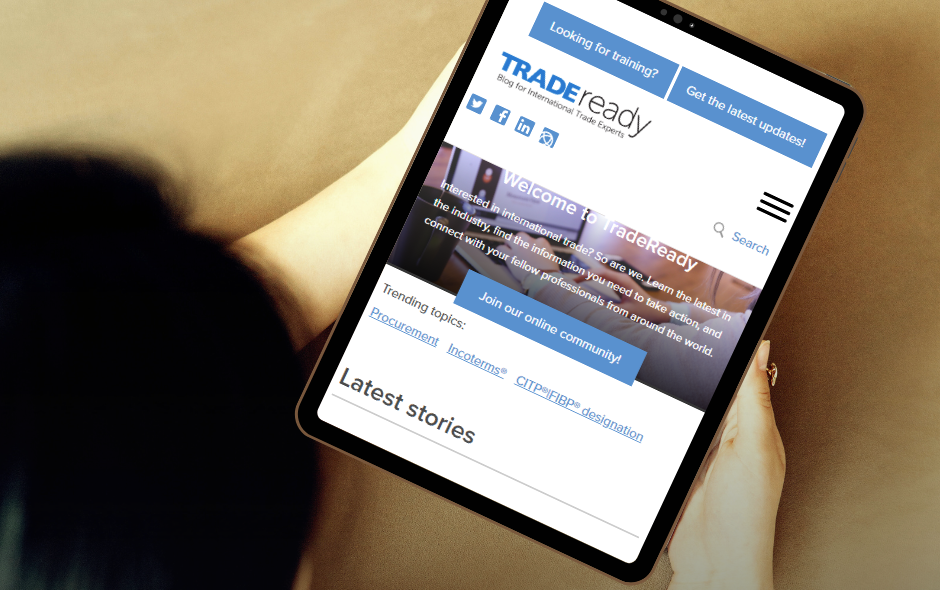 Taking your business global provides an exciting opportunity to expand, but it also provides a lot of uncertainty. That lack of certainty often centers around business partners.
Taking your business global provides an exciting opportunity to expand, but it also provides a lot of uncertainty. That lack of certainty often centers around business partners.
After performing an initial search to find the best fit for potential distributors or suppliers, you need to be sure they are aligned with all aspects of your business before you commit.
Before you sign on the dotted line, forging a binding relationship with an international business partner, there are some steps you can take to help ensure you’ve found the right one.
1. Start with a standard questionnaire
A simple but effective way to start the screening process for potential trading partners is a questionnaire. Not only will a questionnaire help you get the answers to your most important questions in writing, but it also will provide you with a template to qualify all of your potential business partners. That means if you’re considering several different companies to be your import/export partner, you’ll be able to compare them more easily. Ideally, the questionnaire should be drafted in cooperation with your legal counsel.
While you can tailor the questionnaire to your business’s needs, it should, at the very least, include questions on:
- the company’s background, including it’s identifying and registration information, ownership profile and management;
- disclosures on any legal or civil proceedings the company might be involved in;
- how the company complies with local trade regulations;
- and how they resolve disputes with their business partners.
Have the questionnaire signed by a representative from the company.
2. Get your hands dirty and do your own research
A questionnaire is a good starting point, but you’ll want to do your own investigating to see what you can find out about the company you’re looking to partner with, and the market they operate in. Some information you should be able to find publicly, and that will help you determine whether you’ve found a solid business partner.
While you might come across some of the same information you ask the company to disclose in your questionnaire, performing your own search will likely turn up additional reference sources. These should help to give you a better feel for the company, how it operates and how they are perceived in their market and business community.
Don’t be afraid to ask your potential business partner for third-party references so you can talk to other businesses that have partnered with the company and gain insight into their experiences.
3. Verify all of your findings
When screening potential partners, many companies err by stopping after the initial questionnaire and research stage. But to thoroughly screen partners, you have to go deeper. You should verify all information the company provided.
How deeply you investigate a potential partner should depend on the level of risk they bring to your company. For a business partner who poses relatively low risk, a simple single-source verification of the information they provided on the questionnaire should be enough. On the other hand, a company with a big impact on your operation, or one that operates in a country with strict laws or is prone to corruption, requires a more thorough looking into. When a company has a high enough level of risk, you might consider hiring an outside company to perform the verification and screening.
No matter the level of risk your potential business partner provides, make sure that you follow up on any red flags that might surface during the screening process.
4. Establish trust with your potential partner
The primary reason that choosing an international business partner can be so nerve wracking is that taking on a partner means you ultimately cede some control of your business operation to someone else. Whether you’re looking for a supplier who will deliver what you need when you need it at the agreed-upon price, or you’re looking for a distributor who will represent your product in their market, you need a business partner you can trust.
No matter how your potential partner fares the screening process, you have to feel you can trust them to hold up their end of your business deal and that they will make the right business decisions on your behalf.
Take the time to do what you need to feel comfortable signing an agreement with a new business partner.
That might mean traveling to meet personally with your potential partner or signing a short-term trial contract before committing to a long-term business relationship. In the end, you’ll have to establish a screening process for potential business partners that works for your business and that makes you feel comfortable with the partner you choose.






disqus comments